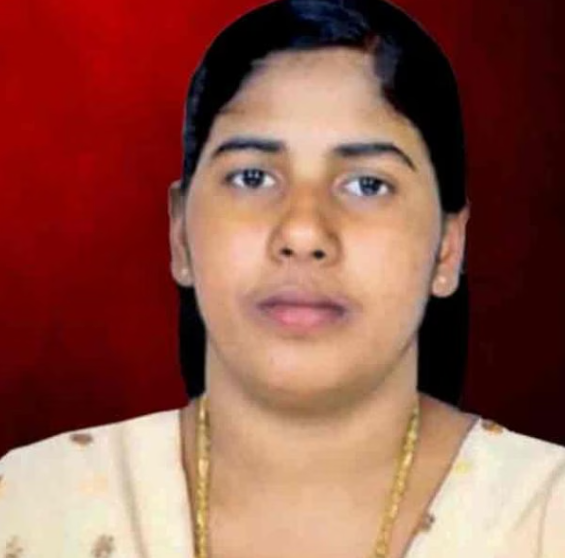following are Nimisha priya conviction for the 2017 murder of her Yemeni business partner, Talal Abdo Mahdi . Here’s an in-depth look at her story:

From Nurse to Businesswoman
- 2008: Moved to Sana’a, Yemen, seeking better opportunities as a nurse.
- 2015: Opened Al Aman Medical Clinic with Mahdi’s help, as Yemeni law required a local partner .
- Over time, she claimed Mahdi exploited her by confiscating her passport, forging marriage documents, abusing her, and stealing clinic funds.
Tragic Consequence
- In July 2017, Nimisha priya administered sedatives aiming to reclaim her passport; harsh consequences tragically followed .
- 2020: Convicted of murder by a Yemeni court and sentenced to death; her appeal was dismissed by Yemen’s Supreme Judicial Council in November 2023 .
Legal Standing & Diplomacy
- Execution date set for July 16, 2025, with diplomatic efforts from India and Kerala underway .
- India’s Supreme Court is hearing a plea urging urgent diplomatic intervention .
- Political leaders like KC Venugopal (Congress) and MP K. Radhakrishnan (CPM) have appealed to PM Modi for swift action.
The ‘Blood Money’ Route
- Under Yemeni/Sharia law, clemency can be granted if the victim’s family accepts diyya (blood money).
- Nimisha priya’s family and supporters have raised amounts ranging from $40,000 to even $1 million hoping to negotiate a pardon .
- The offer remains under negotiation; no agreement has been finalized .
Also Read : The Dark Secret of Dharmasthala: Over 100 Bodies Buried Between 1995–2014?
Personal Toll & Community Impact
- Her husband, Tomy Thomas, and their daughter live separately in India; Tomy confirmed Nimisha priya received her execution notice via message from prison .
- Her mother, Prema Kumari, is in Yemen seeking legal recourse and negotiating with Mahdi’s family .
- The village in Palakkad is fervently praying for divine intervention as the date approaches.
Why This Matters
| Aspect | Significance |
|---|---|
| Humanitarian | Balancing a fair trial, abuse claims, and her death sentence—a global rights issue. |
| Diplomatic | India has no embassy in Yemen; coordination involves complex geopolitics and foreign ministries. |
| Legal | Setback after Supreme Court plea; blood money negotiations now critical. |
| Public Response | Strong outcry from politicians, media, and communities both in India and abroad. |
Nimisha Priya’s case is a profound blend of personal tragedy, legal complexity, and international diplomacy. All eyes are on whether India can secure a last-minute pardon or diplomatic reprieve before July 16.
The Central Government of India has not taken swift or strong public action in the case of Nimisha Priya — the Kerala nurse facing death penalty in Yemen — due to a combination of legal, diplomatic, and geopolitical reasons. Here’s a detailed explanation:
1. India Has No Diplomatic Presence in Yemen
- Yemen is a war-torn country, and India closed its embassy in Sana’a in 2015 due to the ongoing civil war.
- This makes direct diplomatic intervention extremely difficult, as India must coordinate through third-party countries (like Oman or the UAE) or via international agencies.
2. Yemen Follows Sharia Law Strictly
- In Yemen, Sharia law allows for “Qisas” (death penalty) unless the victim’s family accepts “diyya” (blood money).
- The Indian government cannot interfere directly in judicial proceedings of a sovereign nation — especially one governed by religious law.
- The only route left is negotiating with the victim’s family, which Nimisha priya’s supporters are trying to do.
3. ‘Private Matter’ Under Yemeni Law
- Yemeni law treats such cases as a private dispute between the accused and the victim’s family.
- The Indian government is legally limited in influencing or overruling Yemen’s court ruling unless a pardon is granted by the victim’s family.
4. Some Diplomatic Efforts Are Happening — Quietly
- India’s Ministry of External Affairs (MEA) has said it is “aware of the case and in touch with authorities.”
- A team from Kerala (including her mother) has gone to Yemen with legal documents and funds for blood money.
- The Indian Embassy in Djibouti and other Middle Eastern nations may be acting behind the scenes — but public pressure is growing for more transparency.
5. Centre May Be Avoiding Political Risk
- Death penalty abroad is a politically sensitive issue. Any high-level action can:
- Set dangerous diplomatic precedent.
- Lead to domestic backlash from minority or women’s rights groups.
- As the case involves charges of premeditated murder, not self-defense, the Centre might be treading cautiously.
6. What’s Being Demanded Now?
- Public and political leaders are urging PM Modi and MEA to:
- Intervene immediately at the highest level.
- Raise humanitarian grounds and push for a temporary stay on the execution.
- Negotiate clemency via backchannel diplomacy.
Summary
| Factor | Explanation |
|---|---|
| No Indian embassy in Yemen | Makes direct intervention difficult |
| Sharia law system | Only victim’s family can pardon via blood money |
| Sovereign legal jurisdiction | Indian govt has limited authority |
| Quiet diplomacy ongoing | But not enough visible action |
| Political and legal sensitivity | Centre may be avoiding headline involvement |
The Nimisha Priya case has sparked nationwide concern, yet the India response to Nimisha Priya remains limited. With no embassy in Yemen and legal hurdles in Sharia law, India’s intervention is restricted. Citizens and human rights activists demand urgent diplomatic efforts to prevent her execution and ensure justice is served.
